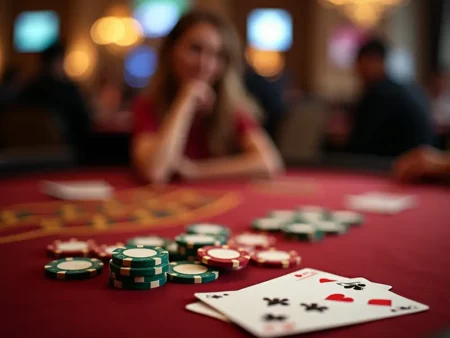A mainland man was arrested in Macau for illegal currency exchange near a major casino, highlighting challenges in combating illicit financial activities that threaten the region’s gaming-dependent economy.
Macau Police Target Illegal Currency Exchanges Near Casinos
In a significant operation reflecting Macau’s ongoing efforts to regulate its bustling gaming industry, a mainland man has been arrested for engaging in illegal currency exchange activities near one of the region’s prominent casinos. This incident sheds light on the intricate dynamics of illegal trading in a territory where the gambling industry is a cornerstone of the economy. Understanding these developments is crucial, especially in a region heavily dependent on tourism and gaming revenues. Macau gaming recovery
The arrest highlights the challenge authorities face in combating illicit financial activities, which can undermine the integrity of Macau’s economy. The illegal currency exchange could potentially open avenues for money laundering and other criminal activities, which ultimately poses risks to both local citizens and tourists alike. To understand the implications of this operation, it’s essential to delve into several key areas.
In this article, we will explore the following points:
- The context of the arrest
- The regulatory landscape governing currency exchanges
- The impacts of illegal operations on the local economy
- Casino responses to these challenges
- Law enforcement strategies
- Potential future developments in Macau’s gaming sector
The Context of the Arrest
The arrest occurred near a major casino facility, indicating the prevalence of such illicit activities in high-traffic tourist areas. Authorities detained the suspect after monitoring suspicious transactions that deviated from established global exchange norms. According to local authorities, he was offering substantially better rates than the official venues, which is a common tactic among illegal operators trying to attract customers.
“This arrest underscores our commitment to maintaining safe and fair gaming practices in Macau,” stated a spokesperson from the Macau Gaming Inspection and Coordination Bureau.
As signs of irregular currency exchange activities grow, scrutiny from law enforcement agencies intensifies. By targeting these underground operations, authorities hope to preserve the legal financial framework that supports their thriving tourism industry.
Regulatory Landscape Governing Currency Exchanges
The laws and regulations surrounding currency exchange in Macau are stringent, designed to protect both consumers and the economy. Registered exchange businesses must comply with licensing requirements, submit to regular audits, and implement anti-money laundering measures. Furthermore, these institutional frameworks aim to ensure that operations are transparent. Macau casino regulation
Illicit exchanges, however, often operate outside these regulations. Operators may use creative strategies to disguise their activities, such as not holding a physical storefront and conducting transactions via discreet online communications. This lack of oversight can lead to significant financial risks for unsuspecting customers.
Impacts of Illegal Operations on the Local Economy
Illegal currency exchanges can have far-reaching consequences for Macau’s economy. First, they affect the formal financial market by distorting exchange rates and limiting the revenue potential of licensed exchange bureaus. According to a study conducted by the Macau Institute of Financial Studies, a 15% increase in illegal currency transactions can lead to a substantial decrease in local businesses’ profitability.
Moreover, the growth of these activities has implications for tax revenues. As unregulated exchanges flourish, the government loses out on potential tax revenue, which could otherwise be utilized for public services and infrastructure improvements. This insufficiency can strain local resources and impact overall economic stability. Macau casino revenue impact
Casino Responses to Legal and Financial Threats
Casinos are not just passive observers of this landscape; they actively seek to uphold their reputations by combating illegal currency exchange activities near their premises. Many casinos have taken proactive steps, implementing stricter identification protocols for large transactions and introducing technology to monitor unusual financial behaviors.
Some operators have also collaborated with law enforcement, sharing data and reports on suspicious exchanges that are likely to affect casino operations. This cooperation exemplifies a holistic approach toward regulating illicit activities, ensuring a safer environment for both employees and patrons.
Law Enforcement Strategies in Macau
Macau’s law enforcement agencies have ramped up their efforts in monitoring and regulating illegal financial activities. Recent initiatives include the establishment of a dedicated task force specifically focusing on illegal currency exchanges. This task force conducts undercover operations and collaborates closely with international financial monitoring agencies aimed at tracing the flow of illicit funds. East Asian organized crime crackdown
Furthermore, public awareness campaigns have been employed to educate citizens and tourists about the risks associated with illegal currency transactions, thereby reducing the demand for such services. Enhanced training for police personnel on financial crimes has also been implemented to improve operational efficiency.
Potential Future Developments in Macau’s Gaming Sector
Looking forward, the ongoing scrutiny of illegal activities is poised to shape the future of Macau’s gaming sector. Analysts predict that continued enforcement will not only reduce illegal currency exchanges but also foster a more secure environment, potentially attracting higher levels of legitimate tourism and investment.
The government’s commitment to tightening regulations may also stimulate a review of existing gaming licenses, compelling operators to adapt to stricter compliance demands. As state officials seek to reinforce Macau’s reputation as a safe and reliable gaming hub, monitoring illegal activities will undoubtedly continue to be a priority. Macau casino future challenges
Conclusion: A Safer Macau Awaits
This recent incident serves as a reminder of the delicate balance Macau maintains between its thriving casino business and the risks posed by illegal financial activities. By arresting individuals engaged in unauthorized currency exchanges, local authorities are not only enforcing the law but are also sending a clear message: illegal activities have no place in Macau’s economy.
As regulations tighten and enforcement intensifies, it is crucial for stakeholders to understand and adapt to the evolving landscape. Key takeaways include recognizing the potential effects of illegal operations on the economy, understanding the regulatory framework, and acknowledging the critical role that law enforcement plays in maintaining a safe environment for all.
Ultimately, the future of Macau’s gaming sector will depend on its ability to stay ahead of illicit trends while fostering an atmosphere of trust, safety, and profitability. As stakeholders collaborate and strategies evolve, a safer Macau awaits.














[…] In a surprising turn of events, a mainland man was arrested in Macau for engaging in illegal currency exchange activities near a bustling casino. This incident not only underscores the ongoing challenges of regulating currency exchange within the region but also highlights the potential risks and ramifications associated with unauthorized currency trading. It is crucial to understand the context in which this arrest took place. Macau Police Target Illegal Currency Exchanges Near Casinos […]
[…] gambling but also raises concerns about how well authorities are handling these issues. For more on illegal currency exchanges near casinos, explore the latest […]